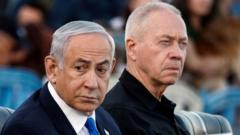McDonald’s and Starbucks have both reported declines in sales and profits — and both corporations blame boycotts by supporters of Palestine amid Israel’s war in Gaza as a factor in their weak results.
McDonald’s yesterday reported that its global sales declined for the first time since 2020, with its net profit declining 12 percent compared to the same period last year. Starbucks announced Tuesday that sales in North American stores dipped 2 percent, and sales in the rest of the world dipped 7 percent. It also reported that its total international profits dropped by 23 percent.
Although the companies point to currency fluctuation, slowdown within the Chinese market, and consumer reaction to rising menu prices to account for the change, the chief executives of both corporations cited the conflict in Gaza when discussing problems the businesses face.
Boycott, Divestment, Sanctions — a Palestinian-led movement to oppose Israel’s occupation and apartheid in Palestine — celebrated the dip in McDonald’s earnings on their social media accounts, writing, “#BDS is working!” While McDonald’s is not a part of the group’s list of targeted economic or consumer boycotts, they have endorsed it as an organic, grassroots movement that started shortly after October 7, when the chain’s Israeli franchises supported the Israeli military in its incursion on Gaza.
“McDonald’s Israel provided free meals for Israel’s forces during #GazaGenocide against 2.3 million Palestinians, and the company with its dozens of branches has for decades fed apartheid Israel’s war chest,” the group said, using the hashtag #BoycottMcDonalds.
During a quarterly earnings call on Monday, McDonald’s CEO Chris Kempczinski said “several markets … continue to be negatively impacted by the war in the Middle East.” The company had previously warned of low earnings in Middle Eastern countries and Southeast Asian countries such as Indonesia and Malaysia, which have Muslim majorities. On the earnings call, Kempczinski also noted that sales in France were down, and attributed that decline to the country’s large Muslim population.
Starbucks CEO Laxman Narasimhan also invoked the conflict in the company’s quarterly call on Tuesday, indirectly pointing to boycott efforts in the same regions as McDonald’s international trouble spots.
“Headwinds persist in the Middle East, Southeast Asia, parts of Europe driven by widely discussed misperceptions of our brand,” said Narasimhan. Earlier this year, the company reported a “significant impact on traffic and sales” in the Middle East and the U.S. markets, which it also attributed to “misperceptions” about its brand.
Shortly after October 7, Starbucks Workers United, the union that represents more than 10,000 of the chain’s employees, expressed solidarity for Palestine on its X account in a since-deleted tweet. The union’s post read “Solidarity with Palestine!” and quote-tweeted an image of a bulldozer breaking through the fence encircling Gaza. Starbucks retaliated, suing the union for damaging its reputation and misleading consumers to think the company itself supports Palestine. News of the lawsuit went viral online, along with calls to stop buying from the chain.
Calls to boycott McDonald’s also began days after October 7, when the fast food giant’s Israeli franchisee announced on social media it had “donated and continues to donate tens of thousands of meals to IDF units, the police, hospitals, residents around the strip and all rescue forces,” referring to the Israel Defense Forces.
Kempczinski defended his company amid the McDonald’s boycott in a January LinkedIn post, blaming hits to stores internationally on “the war and associated misinformation.” Seemingly drawing distance between Israel and its other markets, he noted that McDonald’s international stores are owned locally, “including in Muslim countries.”
Residents and rights groups, namely in Muslim-majority nations such as Pakistan and Kuwait, started to boycott the chain, prompting the Pakistani franchisee to distance itself from the issue. In April, McDonald’s was forced to buy back its 225 restaurants in Israel after the boycott tanked sales in the Middle East, according to reports.
The post Boycotts Against Israel Are Hurting Starbucks and McDonald’s Sales Worldwide appeared first on The Intercept.

 3 months ago
72
3 months ago
72



